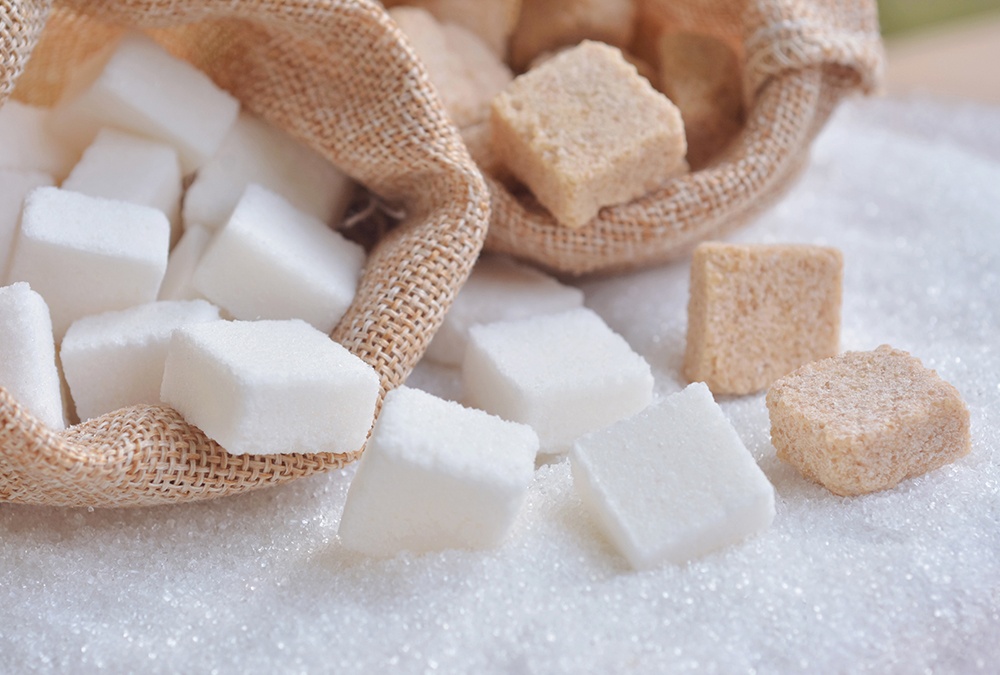Mon - Fri 9.00 - 17.00
Call us +1 (888) 825-9321

Eliminating refined white sugar is one of the most important aspects of the keto diet. Along with eating a low-carb diet that allows you to maintain a steady state of ketosis, it’s helpful to use keto-friendly sugar replacements so you don’t feel deprived of your favorite foods and flavors. Natural sugar alternatives include monk fruit extract, stevia, erythritol, and maltitol, and there are also artificial alternatives to regular sugar like aspartame, sucralose (zero calorie), and saccharin. When it comes to keto recipes for sweet treats, there are a variety of options. But today, we’re focusing on maltitol keto recipes, as well as the pros and cons of maltitol and how it compares to other natural sugar substitutes.
Sugar can trigger the same reward centers of the brain as cocaine, making it a very real addictive substance that can be hard to quit. And yet, on the ketogenic diet, quitting sugar is as important as capping your net carbs at around 5% of your daily calorie intake. Ketosis is achieved only by denying the body easy sugar energy and forcing it to access a secondary metabolism that burns fat for ketone energy. Plus, the health benefits of avoiding sugar are clear and overwhelming: by avoiding sugar you can discourage obesity, preserve your dental health, and avoid the development of type 2 diabetes.
Fortunately, there are plenty of options for sweetening foods without sugar, and maltitol has become a standout keto sweetener. Let’s see how it stacks up to sugar alternatives like Splenda, allulose, xylitol, dextrose, and more.
Maltitol is a sugar alcohol derived naturally from foods like vegetables and fruits, but usually extracted from the corn syrup by-product maltose. With half (or less) of the calorie content of sugar, sugar alcohols are used to sweeten foods like candy and baked goods you find on your grocery store’s shelves (the ingredients list may list it as sugar alcohol or sorbitol). Maltitol in place of sugar helps foods stay more moist and not brown as quickly, making them more appealing to consumers.

There are benefits and downsides when it comes to maltitol as a keto sugar replacement. We have the facts and some alternatives to choose from as well.
With fewer calories than sugar, maltitol is valued as a weight-loss aid. That’s often the biggest selling point, but many people also are pleased to find that maltitol lacks the bitter aftertaste that some sugar alternatives have.
Another benefit of maltitol is that it helps protect dental health. In fact, maltitol is frequently used in sugar-free chewing gums, mouthwashes, and toothpastes to lend a pleasant flavor. Maltitol can also be used to make foods like sugar-free caramel sauce (recipe from Livestrong), eggless chocolate chip and oatmeal cookies (courtesy of Food.com), and sugar-free gummy bears.
Unfortunately there are some downsides associated with maltitol. One problem that isn’t unique to maltitol but is instead a common issue among sugar-free, low-carb sweeteners: bloating. Bloating and what some refer to as “bubbleguts” are side effects of maltitol, resulting from gas created in your small intestines. This coupled with a mild laxative effect that could cause diarrhea may make you want to steer clear of maltitol.
Another major concern with maltitol is its GI number: it’s got a remarkably high glycemic index score. The glycemic index is a ranking of how quickly a food increases your blood glucose levels. Sugar is a 60 on this chart, maltitol syrup clocks in at 52, and powdered maltitol comes in at a lower 35. That’s not much of an improvement compared to sugar, especially when there are other sugar substitutes like stevia which score 0 on the GI chart with no effect on your insulin levels at all. Maltitol has a high glycemic index score even compared to other sugar alcohols, which means large amounts of it may do similar harm as sugar.
With so many sweetener options out there, there are alternatives that may suit you far better than maltitol. Here are just a few of our favorite sugar alternatives.
Stevia comes from the stevia plant native to South America, and it is hundreds of times sweeter than sugar (allowing you to use less of it to get the same sweetness). Not only does it not contribute to your net carb count, but it also provides some of its own nutrients, including potassium, magnesium, zinc, vitamin B3, fiber (good for your beneficial gut bacteria), and iron if you are using a whole-leaf stevia product.
Erythritol is the main sweetening component of Swerve brand alternatives to table sugar, brown sugar, and confectioners sugar. It is also a sugar alcohol, but its GI score is significantly lower and it has fewer calories. With no bitter aftertaste and no reports of gas or intestinal discomfort, it stands as a far superior alternative to maltitol in regards to your blood sugar levels and more.
Allulose is a a simple sugar, or monosaccharide, around 70% as sweet as table sugar, but with around 95% fewer calories. Naturally found in foods like raisins, figs, and jackfruit, allulose is another keto-friendly natural sweetener you could use in place of sugar or maltitol.
While maltitol isn’t the best of the bunch when it comes to sugar substitutes, it’s still an appropriate sugar replacement that can help you sweeten your food on keto. That being said, if you’re already on keto, our guess is that you’d prefer the healthiest sugar alternative, and that you’d rather stick with natural sweeteners over artificial sweeteners.
Honey, maple syrup, blackstrap molasses, and agave nectar are all natural alternatives with either better nutritional profiles than maltitol, lower fructose levels, or both. Whichever you choose, just know that by sticking with natural, sugar-free sweeteners, you’re more likely to maintain the weight loss you achieve on keto, lower your risk of developing type 2 diabetes, and improve your cardiovascular health.